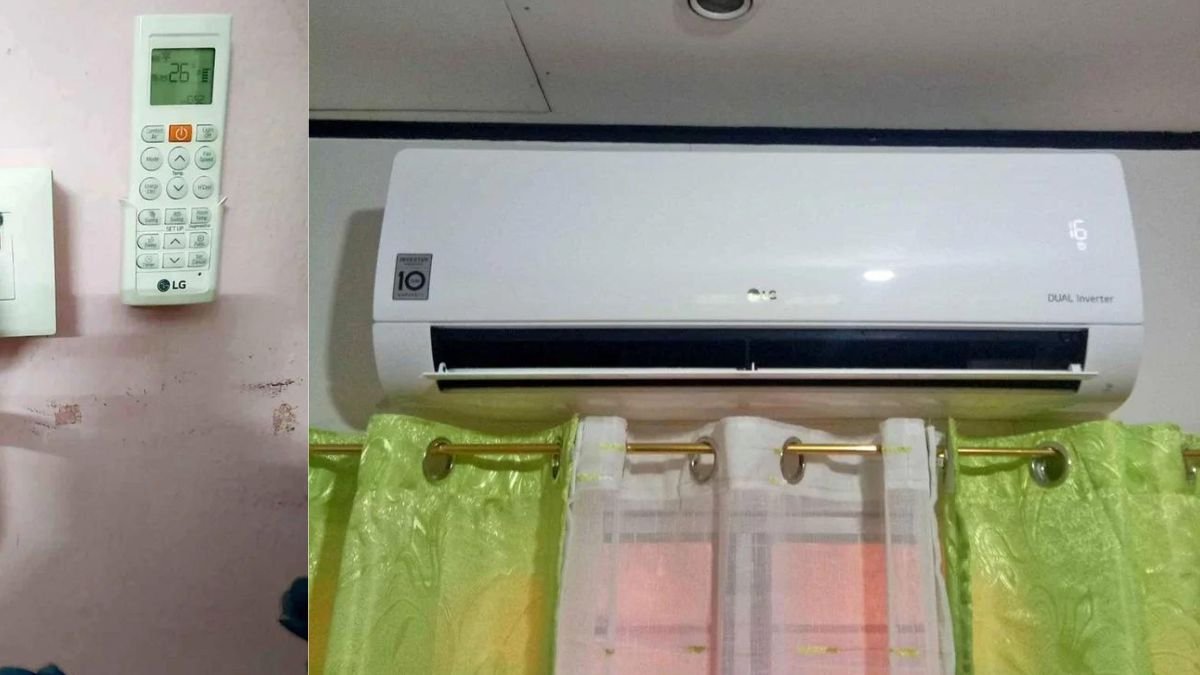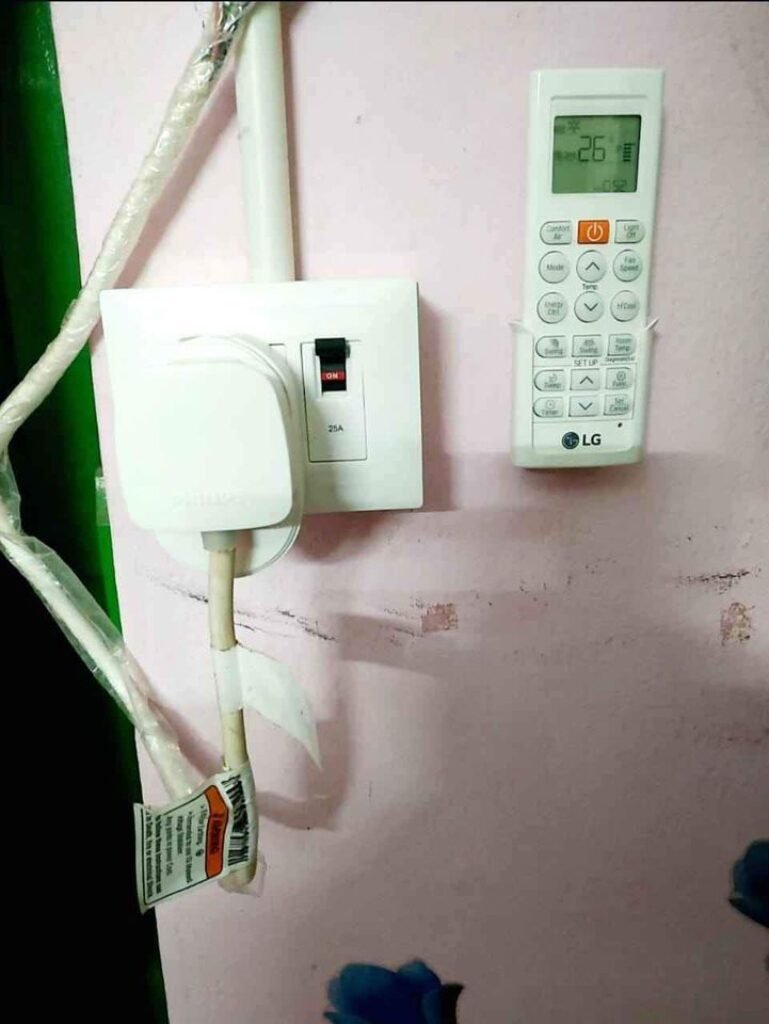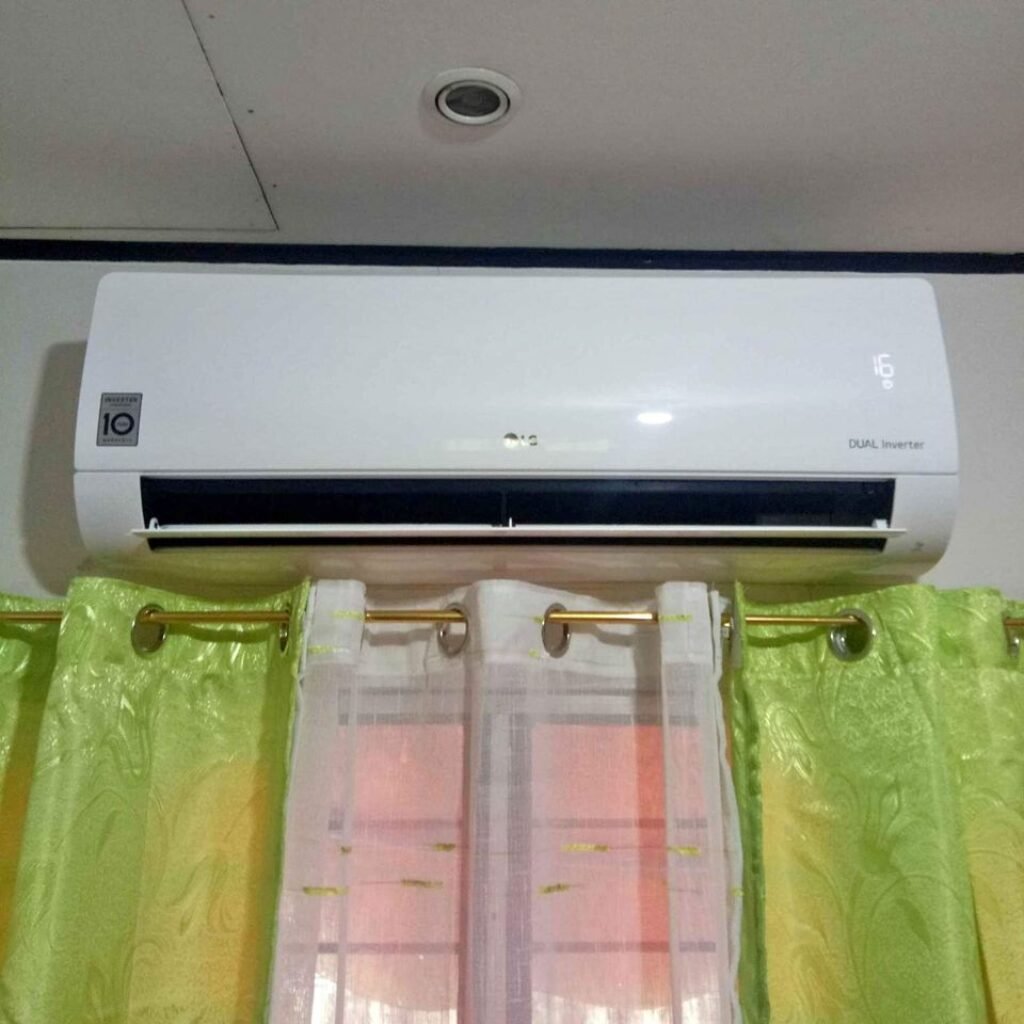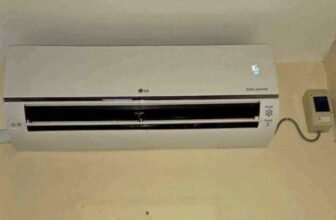
The Bureau of Energy Efficiency (BEE) warns that high electricity bills, disrupted sleep, and health problems can be experienced by air conditioners that operate at night in India.
They are also prone to causing such issues as dry throat, aches in the body, and excessive coldness with improper usage. Although you may have an energy saving model and use it often, you may find yourself in a situation where the settings are poor and therefore causing discomfort and energy wastage.
Nevertheless, these risks do not stop many individuals who are not aware of how to use an air conditioner during the night. Although it is true that certain climates like humid coastal areas need special adaptation, the process is quite easy.
All it takes is the proper temperature setting and simple functions such as Sleep Mode, timer functions, and adequate airflow control.
As a rule, you should put your AC between 24°C to 26°C when sleeping. To ensure that you do it right, follow the following steps.
Which is the optimal temperature to set your AC at night?
To begin with, learn the optimal range of temperatures. Consider these factors:
- The body temperature is inherently lowered when one is sleeping.
- Ventilation and insulation of rooms.
- Temperature and humidity in the outdoors.
- Preferences in personal comfort.
Energy consumption issues.
- Type of AC unit you own – Inverter Or Fixed Speed AC
It should be noted that you might not have to change everything on this list.
The humidity levels, e.g., can be discussed only when you live in the monsoon or coastal regions. Just turn on the dehumidification option, allow it to operate a few minutes and turn to the cooling option in a couple of minutes. Other alternatives can be found in our indoor air quality maintenance guide.
When it is hot and humid, when your power goes out, or when you have some health issues, you might have to make some further adjustments. Ceiling fans may work, too.
#1. Set the right temperature.
Begin with a temperature of 24°C and 26°C as suggested by the Bureau of Energy Efficiency. When you have adjusted, you ought to have a comfortable base level. Do not be tempted to make it below 22°C.
In the meantime, test your electricity charges and consumption patterns. Ensure that it is feasible to have the AC operating during the night.
Areas like humid areas should be handled carefully. Excessive dryness and increased bills may be experienced using very low temperatures. In general, it is advisable not to go below 24°C, unless there is an absolute necessity.
#2. Activate Sleep Mode.
Then switch on Sleep Mode to enable a slow change of temperature. You can do this every night, not only when it is really hot.
Sudden temperature shifts and overcooling may cause or aggravate body aches and breathing problems. Others complain of dry throat and fatigue without having even the slightest idea of the cause.
The typical symptoms are headaches in the mornings, stiffness of the muscles, sore throat, runny nose, and general fatigue in the morning.
Sleep Mode can be used regularly to minimise these signs. Here’s how:
- Find the Sleep Mode button on your remote control and switch it on before going to sleep.
- In case your AC is multi-stage, then programme it to the time you want to wake up.
- You should also make sure to adjust the initial temperature to your level of comfort.
- Close the windows so that the cool air does not escape.

The other alternative is to use Sleep Mode and timer features. You will then programme the AC to turn off after a few hours after setting the desired temperature.
Is it possible to conserve electricity and be cool at the same time?
In case your room has good air cooling capacity, you can use timer features or eco mode in order to save on consumption once the temperature is set. This is an optional step, but will assist in reducing the electricity bills and avoiding overcooling.
Using timer functions
Programme the timer to turn off the AC when it has been on 4-6 hours. Afterwards, use a ceiling fan to keep air flowing. Allow the room to remain comfortable and then have natural cooling till morning.

Using inverter technology
Select an inverter AC which controls compressor speed according to room temperature. This minimises the use of power. Keep it running all night and then see the change in your electricity bills.
Related – Understand the Ducted Air Conditioning vs Split System Running Cost in India
Optimising Night time Airflow.
Airflow, humidity control and cooling are not synonymous. Although it is necessary to cool your room, you can also consider maximising airflow and humidity to improve the quality of sleep.
In case you feel stuffy even with the AC on, look at airflow as soon as possible. Although your room may be cool, still open vents so as to cool down the air and minimise stagnant areas.
Do not point the bed with the vent and consider the following methods:
- Oscillating mode to spread air evenly in the room.
- Low/ medium fan speed to avoid draughts and noise disturbance.
- Ceiling fans and AC as suggested by experts in energy conservation.
- Directly exposed upwards facing vents that cool the room.
Here are some steps that will maximise airflow at night:
- Keep your bed out of direct airflow.
- Direct cooling is indirect cooling by adjusting the AC vents towards the ceiling or walls.
- Turn the fan to low or medium circulation.
- Turn on a ceiling fan at low speed to aid in air circulation.
Fan a little cool air directly into the sleeping place. The surface of the bed must be cool and not cold. Warm the body with a light blanket in case of need.
Preparing Your Room to Cool at Night.
During the installation of the AC, cheque your room against insulation problems. In case you see any, discuss these issues before going to sleep. Look at the kind of windows and what your walls are composed of.
Outside walls, exposure to sunlight and poor sealing can all decrease the cooling efficiency. This applies to the spaces around the doors and windows that can permit the cool air to come out and the warm air to get in.
Such problems are usually the most difficult to resolve forever. We would recommend temporary solutions to expensive renovations, though you might require the services of a professional when there are persistent problems.
Blackout curtains do not only keep the light out, but they also prevent the passage of heat. These products are known as insulating the room as the name implies. Should you choose this path, then opt with thick, thermal-lined curtains.
The other alternative is to make use of ordinary household products to enhance the insulation of rooms. Let’s see a few examples:
- Blackout blinds or heavy curtains.
- Draft stoppers for doors
- Bare floors with rugs or carpets.
- Reflective window films
- Weather stripping for gaps
Specialists suggest closing all the window and door gaps. Weather strip the edges and draught stoppers at the bottom. Allow it to remain and then observe the increase in cooling efficiency.
Similarly, you can apply thick carpets or rugs on tile floors. Sprinkle them softly all over the room and leave them overnight before you can enjoy stable temperatures.
Other problems will also be solved by some of these solutions.
As an illustration, you can use blackout curtains and reflective films to minimise the heat accumulation in the afternoon. Visit our energy-efficient cooling guide to find out more.
How to Cool Your Room Quickly
Cooling your room may require time depending on the outside temperature and the size of your room. But you can perhaps do it with more haste–at least when you are ready beforehand.
To begin with, the most effective method of keeping a room cool is pre-cooling before going to sleep. In pre-cooling, once you are ready to sleep, you just need to change the temperature and there is no more waiting.
In case it is too late and you are in a hot room, follow these steps to cool and make your space ready as fast as possible:
- Shut the room by closing all windows and doors.
- Turn the AC to 22°C at first to cool quickly.
- After 15 to 20 min, adjust to 24°C to 26°C.
- Switch on Sleep Mode prior to sleep.
- Turn on a ceiling fan with low speed to spread cool air.

According to the Bureau of Energy Efficiency, the whole process will take approximately 20 minutes. It is not as efficient as pre-cooling, but it could assist in getting comfortable temperatures fast.
In case you are not comfortable with very low temperatures at the beginning, you can always resort to the use of fans. First, there is this pre-cooling routine of the energy experts that is natural:
Evening Pre-Cooling Routine
Steps:
Directions:
Using AC in Humid Climates.
As it was stated above, humid areas are more difficult to control. The following are some of the things to consider:
#1. First use dehumidification mode.
By turning on the AC in dehumidify mode and then turning on cooling, the excess moisture can be minimised. Nevertheless, there is nothing wrong with turning cooling mode on directly in case the humidity is moderate.
#2. Do not keep the temperatures too low.
Very low temperatures can also be problematic. These temperatures may cause too much condensation and dryness. Rather, apply a moderate temperature of 25°C to 26°C to keep it comfortable.

#3. Don’t ignore ventilation. Monitor humidity instead.
When it comes to the issue of persistent dampness, you should monitor the levels of indoor humidity. Do not leave windows open at night. Moisture may be controlled with a separate dehumidifier.
#4. Wash the dust filter regularly.
Washing philtres will aid in the prevention of moisture and mould. Ideally, they should be washed after every two weeks or they should have washable philtres to facilitate proper airflow.
You are not certain you are doing it right? In case you are not sure of how to do it or are not experiencing the comfort that you desire, it is always a good idea to seek the services of an HVAC professional.
In the case of chronic humidity problems, the professionals might be more effective and be aware of some tricks peculiar to your area. The overall rules above might not be applicable to all climates and types of homes.
Make Your Room cosy all year round.
Now that you have learned how to use an air conditioner at night, have the correct settings in place and keep them the same as well. Cheque the temperature twice, find the problems with airflow, and then choose what features you would like to use.
We would recommend Sleep Mode and ceiling fan. This will not only make it easy to cut down on electricity but it will also make it easy to sleep. Go an extra mile and clean your AC philtres before summer is here.






